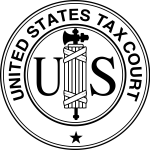 Because of the government shutdown which began October 1, 2013, and ended October 16, 2013, revised due dates apply for the following United States Tax Court filings.
Because of the government shutdown which began October 1, 2013, and ended October 16, 2013, revised due dates apply for the following United States Tax Court filings.
Pretrial Memoranda
- Pretrial memoranda for Regular and Small Tax Case sessions beginning October 28, 2013, are due by “October 24 if possible.” If filed, parties are asked to bring courtesy copies to calendar call.
- Pretrial memoranda for Regular and Small Tax Case sessions beginning November 4, 2013, are due by October 31, 2013.
- Due dates for pretrial memoranda in cases calendared for trial November 12, 2013, and thereafter are unchanged from those provided in the Standing Pretrial Order and Standing Pretrial Notice.
Opening, Answering & Reply Briefs
- Opening, Answering & Reply Briefs with an original due date between October 1 and October 16 are due November 8, 2013.
- Opening, Answering & Reply Briefs with an original due date between October 17 and November 4 are due November 15, 2013.
Answers
- Answers with an original due date between October 1 and October 16 are due November 8, 2013.
- Answers with an original due date between October 17 and November 4 are due November 15, 2013.
Decisions
- Decisions with a due date between October 1 and November 21 are due November 22, 2013.
All Other Items & Actions
- All other items to be filed or actions required to be taken with an original due date between October 1 and October 16 are due October 25, 2013.
- All other items to be filed or actions required to be taken with an original due date between October 16 and October 27 are due October 28, 2013.
Please be reminded that statutory deadlines for filing petitions were not extended during the government shutdown.
Read the Tax Court’s official guidance here:
Tax Court Announcement Final 10.17.13


